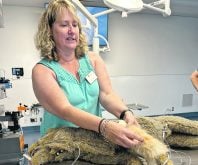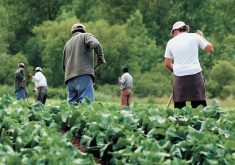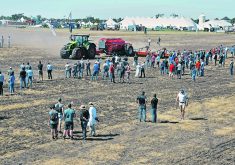Alberta’s NDP opposition continues to call for the closure of the Cargill meat processing plant in High River, Alta., saying it has failed to keep its workers safe from infection by COVID-19.
Labour critic Christina Gray said Cargill must close until it meets legal requirements to engage workers on safety.
She provided a copy of an Occupational Health and Safety demand report dated May 8 indicating Cargill did not “engage its own workers in an internal review of the circumstances that led to 952 cases of COVID-19 among workers at the meat processing plant.”
Read Also

Canadian Food Inspection Agency extends chronic wasting disease control program consultation deadline
Date extended for consultation period of changes to CWD program
Two Cargill workers have died from the virus, as has a third person related to a plant worker. As of May 12, Alberta Health Services reported 25 active cases of the virus among Cargill workers at the High River, Alta., plant, and 920 have recovered.
At the JBS beef plant in Brooks, Alta., AHS reported 44 active cases among workers and 582 recovered.
Harmony Beef in Balzac, Alta., has also had an outbreak. AHS statistics there indicate 12 active cases among workers while 28 have recovered.
Gray said the union representing Cargill workers has repeatedly asked that workers be included in safety planning and protocols at the plant but that has not happened.
“How can (Alberta premier) Jason Kenney and (Alberta labour and immigration minister) Jason Copping possibly allow this plant to stay open when the employer is disregarding the law, and more importantly, ignoring its own workers?” asked Gray.
“There is no safety plan if workers are not included. After everything these workers have been through, they do not trust their employer to put them first. The government must step in and close the plant until these workers are heard and their concerns are addressed.”
Jarrod Gillig, Cargill’s vice-president of operations, said last week that the company has taken extensive measures within the plant to better separate workers while on the processing line and in common areas.
“We’re just trying to think what else and where else,” he said during a conference call.
Cargill idled the High River plant for two weeks in late April and early May when hundreds of workers fell ill or were in isolation. It is now
running, although at slower speeds and at less capacity than previous. A Cargill processing plant in Montreal was also closed last week due to outbreaks of the illness among its workers.
Gray said Cargill is not a safe environment for workers and they should be included in the work site health and safety committee at the plant.
“These workers are counting on it,” said Gray. “If Cargill can’t follow the law, they shouldn’t remain open. Full stop.”
Contact barb.glen@producer.com
















